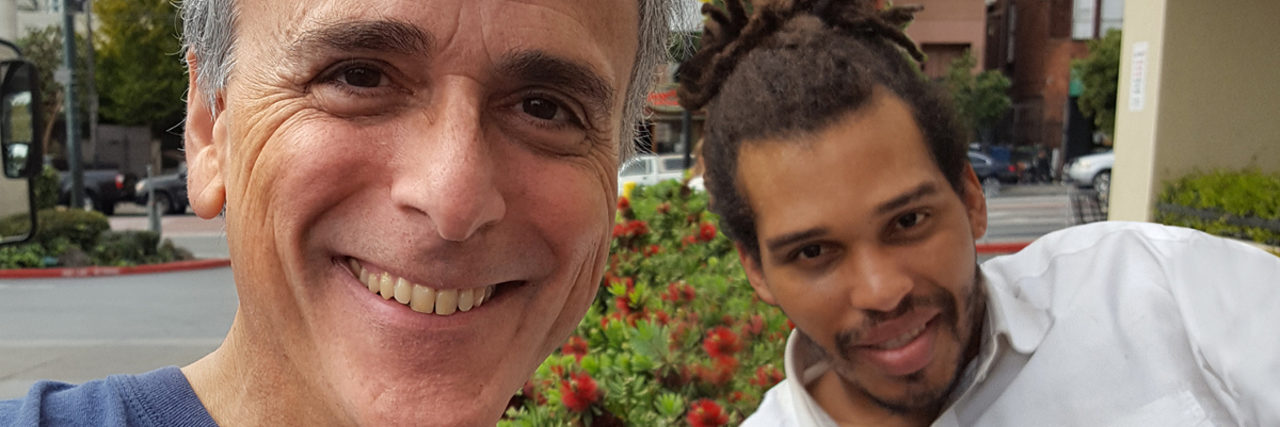By Paul Gionfriddo, President and CEO, Mental Health America.
When my son Tim first started showing signs of schizophrenia, he was young.
He had a lot going for him—committed teachers, a supportive family and community, and access to quality health care. And I had a long list of contacts and connections through years in public life as a policymaker.
Our story, however, unfolded the way a lot of others do. It took 4 years to get Tim special education services, years of fighting to get him appropriate treatment, and a decade before he got his official diagnosis. By that time, we had run up more than a half-million dollars in medical bills, and still more in special schools, programs, and services.
This was a frustrating time in my life. I experienced heavy doses of both anger and anxiety. I learned how much the deck was stacked against parents and caregivers. But I learned even more about how much worse it was for people like Tim who lived with mental health conditions. His power to make choices for himself seemed to diminish with each passing day.
Although he loved learning, Tim struggled to keep up in school.
Although he treasured freedom, he found it jeopardized by his interactions with the juvenile justice system.
Although he enjoyed feeling productive, he was fired from work when his symptoms flared up and has had difficulty finding meaningful employment.
As a result of all these choices we’ve made—by law, by regulation, or by rule—Tim has spent most of his adult life trapped in the revolving door of occasional hospitalization, frequent incarceration, and chronic homelessness.
I am sometimes asked what I think would have happened to Tim if I hadn’t had all my connections, knowledge, and political influence. I tell them the answer—pretty much the same thing, because it doesn’t matter whom you know, what you know, or who you are when schizophrenia hits. The system we’ve created dates to policy decisions made years ago—decisions that today’s policymakers often double down on.
As a matter of public policy, we don’t use a clinical standard as a trigger to treatment for schizophrenia, we use “danger to self or others.” I understand why. We intended to protect individuals from losing their rights and freedoms when they got sick. But all we succeeded in doing was making mental illnesses the only chronic conditions that we wait until “Stage 4,” or when serious mental illness gets worse and disrupts people’s lives, to treat, and then often inappropriately only through incarceration.
We focus too much on treating late-stage serious mental illness in places like jails and prisons, instead of treating all mental health conditions seriously—by treating adults with schizophrenia soon after diagnosis, before it impacts their families, educational opportunities, jobs, housing and daily life.
We can do a lot better than this.
Three-fourths of mental illnesses emerge by the age of 25. We must screen for mental health throughout our lives. For adults, early treatment and support can provide a foundation for ongoing recovery. Specifically, for adults living with schizophrenia, we need to offer honest choices about treatment, including oral medications and long-acting injectables, peer support, talk therapy, overall health maintenance, and support services. And we need policies that pay for what adults choose.
Tim has taught me a lot during his 34 years about power, patience, and hope. He has persevered against odds most of us could not overcome. He has endured through challenges most of us could not imagine. Because he has schizophrenia.
Tim did not choose to be expelled from schools. He did not choose to be excluded from work. He did not choose to be evicted from housing. He did not choose to be jailed. He did not choose to live for long periods on the streets. We chose all that for him.
And we could choose more wisely in the future.
In order to #ChangeSchizophreniaExpectations, we need to work together to address the way schizophrenia is seen and treated. Find more advocate stories and resources on TheMighty.com.


